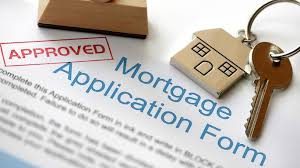
Buyers often inquire about higher loan to value (LTV) Jumbo mortgage programs that don’t require a 20% down payment. Are there options today for 90% financing? The short answer is yes, but these programs may come with stricter requirements and limited loan amounts. Let’s take a look at the requirements below.
Traditionally, Jumbo loans are those that exceed the conforming loan limit set by Fannie Mae and Freddie Mac. In most areas of the United States, this limit is $766,550 for a single-family home. However, in high-cost areas such as Los Angeles or DC, the conforming loan limit can go up to $1,149,825 for a 1-unit property.
For borrowers looking to finance a property above these loan limits, a Jumbo loan may be necessary. And while many lenders and banks require a 20% down payment for Jumbo loans, there are some options available for buyers who want to finance up to 90% or even 95% loan to value.
Low down payment jumbo financing can provide borrowers with greater flexibility by allowing them to keep more cash on hand for other investments or expenses. It can also open up opportunities for qualified buyers who may not have enough liquid assets to make a large down payment. Or can assist buyers that are relocating and have a large portion of their equity tied up in another property.
But it’s important for borrowers to understand the potential risks and benefits of low down payment jumbo financing. While it may seem appealing to put less money down, it also means taking on a larger loan amount and potentially higher monthly payments. Borrowers should carefully consider their financial situation and future plans before deciding on a low down payment option.
The 90% financing loan caps are restricted based on location. For buyers in designated high-cost locations, the loan limits commonly go up to $3m. Buyers purchasing in standard locations may be limited to $2.5m. Please check with us as the limits can change periodically.
Combo 80-10-10 mortgages are a great alternative for buyers with less than 20% down payment. This type of loan gives buyers two separate loans for their home purchase – the first covers 80% of the purchase price, while the second covers the remaining 10%. The buyer then puts down a 10% cash down payment.
This piggyback loan structure can provide a few benefits, mainly eliminating the need for private mortgage insurance. Also, in some cases, by keeping the primary first mortgage at or below the conforming limit, borrowers can often take advantage of lower interest rates.
 Important Qualifying Details:
Important Qualifying Details:
In addition to the loan limits, buyers will also want to take note of other important details listed below.
- The 10% down payment option is available for both primary and second/vacation home purchases. However, loan limits on second home transactions will be reduced slightly. Investment-rental property transactions are not permitted.
- Borrowers will need to provide documentation to prove their ability to repay the loan, including tax returns, bank statements, and proof of assets. Lenders want to ensure that borrowers have adequate payment reserves in case of financial emergencies.
- The program does have special bank statement qualifying options for self-employed borrowers who require this.
- Standard fix rate and adjustable rate terms available – all fully amortized.
- Borrowers must have a strong credit score and in order to qualify for a jumbo mortgage. Lenders typically require a minimum credit score of 680+ depending on the down payment, loan amount requested and location. Higher credit scores over 720 may also result in better interest rates.
- Applicants must also have a low debt-to-income ratio, typically no more than 45%, to be considered for a jumbo mortgage. This means that your monthly debts, including the new mortgage payment, should not exceed 45% of your gross monthly income.
- Refinances, including “cash out” refinance, is permitted.
 Loan Application Process:
Loan Application Process:
The application process is simple and often similar to a regular mortgage application. Borrowers will need to gather all required documentation, including but not limited to income statements, tax returns, bank statements, and proof of assets. These documents are used by lenders to ensure that the borrower has the ability to repay the jumbo loan.
Once all necessary documents are gathered, borrowers can begin filling out the loan application form online, or over the phone with their loan rep. This form will ask for personal information such as name, address, employment history, and details about the property being purchased or refinanced.
After submitting the application, borrowers may be asked to provide additional documentation or clarification on certain aspects of their financial situation. It is important to respond promptly and accurately in order to avoid delays in the approval process.
Buyers that have questions, can connect with us at the number above, or just submit the Quick Contact Form on this page.
 Important Qualifying Details:
Important Qualifying Details:  Loan Application Process:
Loan Application Process: